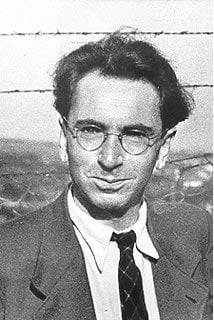by Marie Snyder
 The second half of Frankl’s Man’s Search for Meaning was added in 1962 to provide greater detail of Logotherapy, in which patients must hear difficult things in contrast to psychoanalysts provoking telling difficult things. It’s less introspective and more focused on our place in the world:
The second half of Frankl’s Man’s Search for Meaning was added in 1962 to provide greater detail of Logotherapy, in which patients must hear difficult things in contrast to psychoanalysts provoking telling difficult things. It’s less introspective and more focused on our place in the world:
“Logotherapy defocuses all the vicious-circle formations and feedback mechanisms which play such a great role in the development of neuroses. Thus the typical self-centeredness of the neurotic is broken up instead of being continually fostered and reinforced . . . the patient is actually confronted with and reoriented toward the meaning of his life. . . . Striving to find a meaning in one’s life is the primary motivational force in man. That is why I speak of a will to meaning in contrast to the pleasure principle on which Freudian psychoanalysis is centered, as well as in contrast to the will to power on which Adlerian psychology, using the term ‘striving for superiority,’ is focused” (98).
Aside: A bit of history of philosophy here: Schopenhauer wrote about the will-to-live in World as Will and Representation in 1818: our very being is our will, our blind urges towards life, and it’s also the dynamic essence of the world. He was influenced by the Buddhist Four Noble Truths in this respect, although he focused less on the practice of decreasing striving in order to reduce the experience of suffering. He preferred to soothe his misery with art. Read more »
